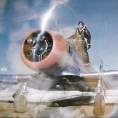Close Call At JFK
-
Members Online
- Schllc
- raymondscott0321
- Fritz1
- Nokomis449
- Mooney20J_Driver
- mooneyfun
- redbaron1982
- donkaye
- toto
- Lois
- Mooney-TN
- LANCECASPER
- drpovation
- Marc B
- MattCW
- Ragsf15e
- Rmnpilot
- katzhome
- 1980Mooney
- prillayo03
- kortopates
- tankles
- slowflyin
- Mark89114
- chrisburdzy98
- PeteMc
- Will.iam
- Joshua Blackh4t
- Jakes Simmons
- robgross60
- christaylor302
- CalebH
- Bolter
- TCC
- acekng1
- DEGWS
- Ibra
- exM20K
- Phil EF
- hubcap
- Danb
- TheAv8r


Recommended Posts
Join the conversation
You can post now and register later. If you have an account, sign in now to post with your account.